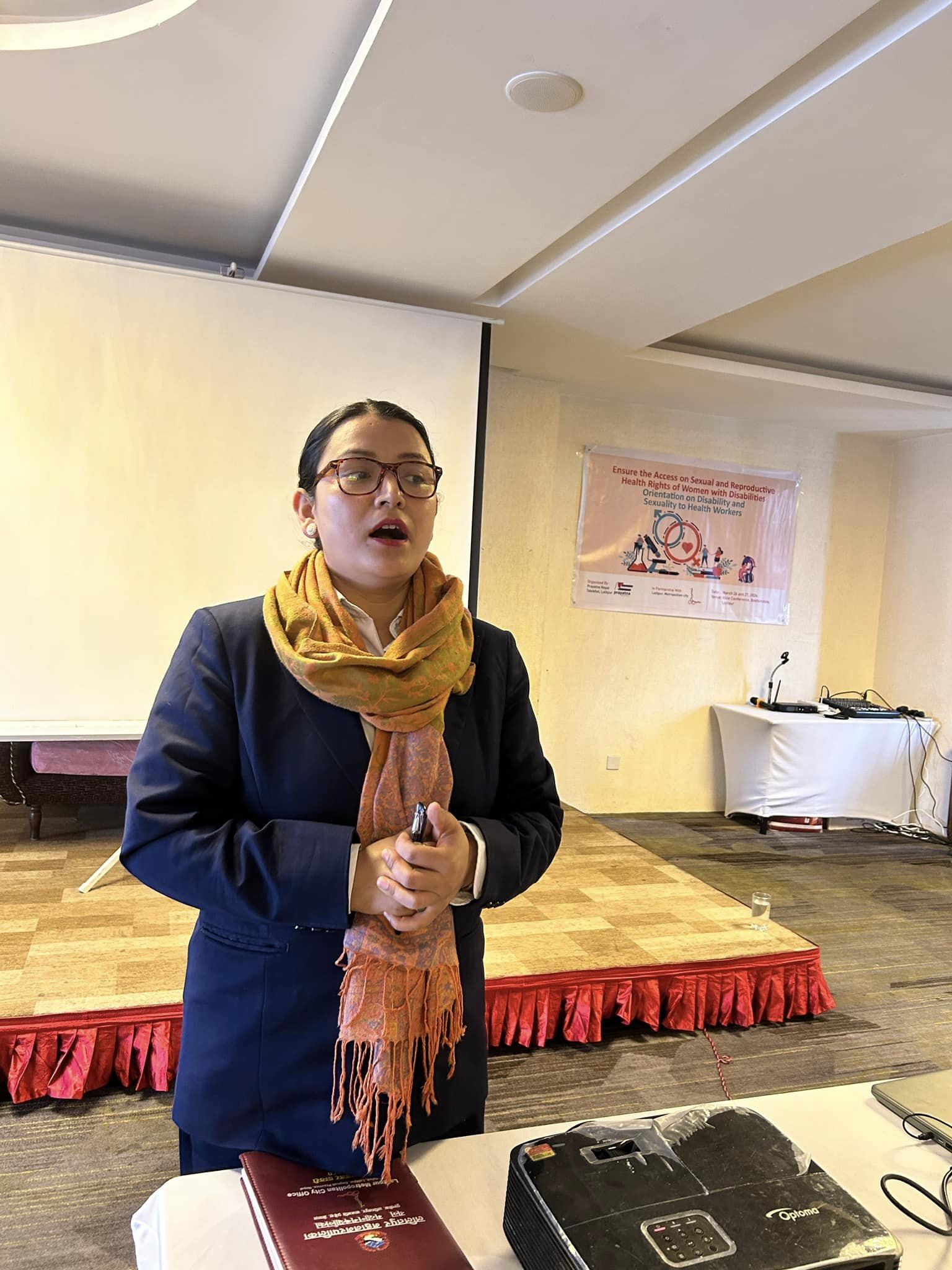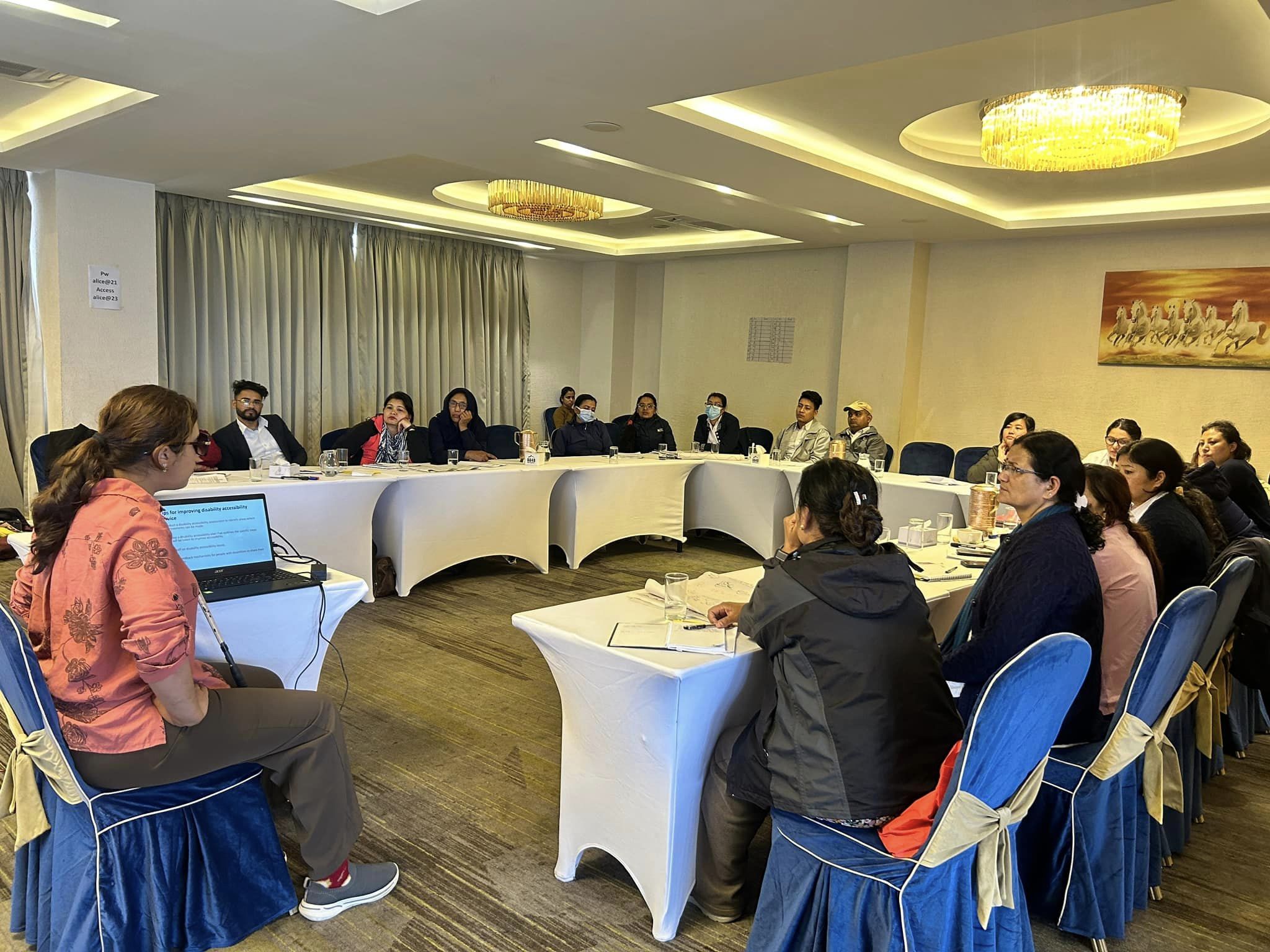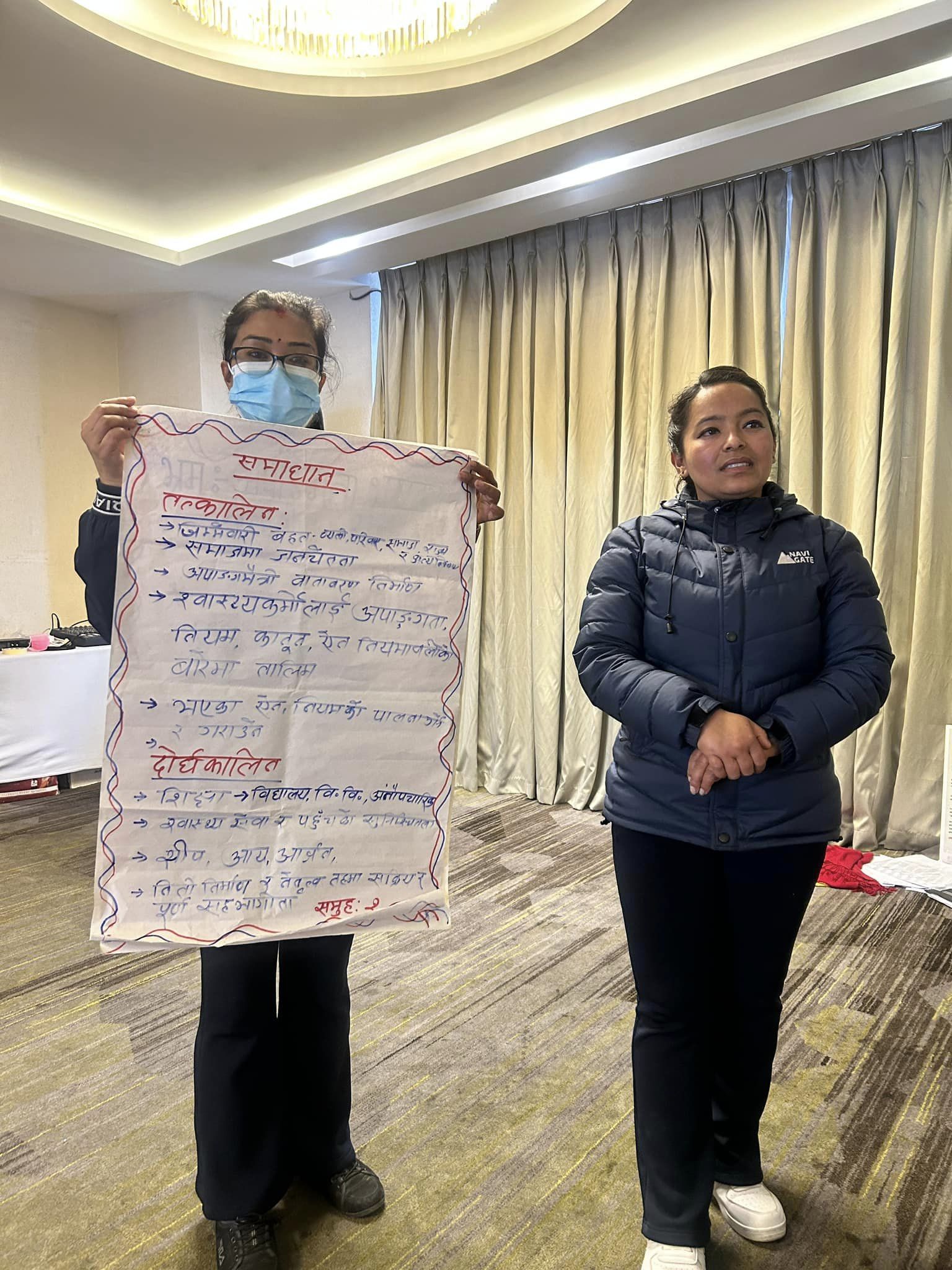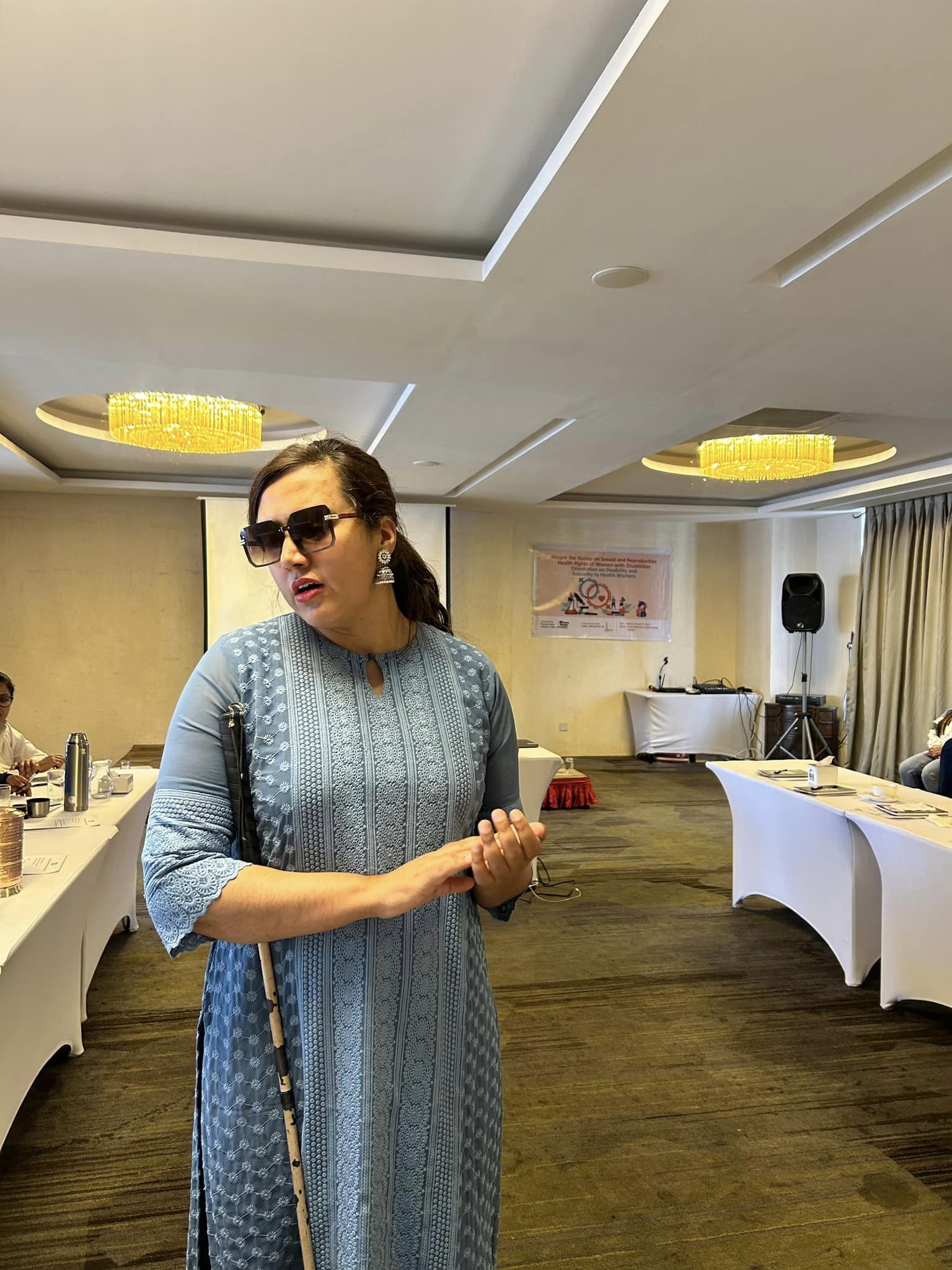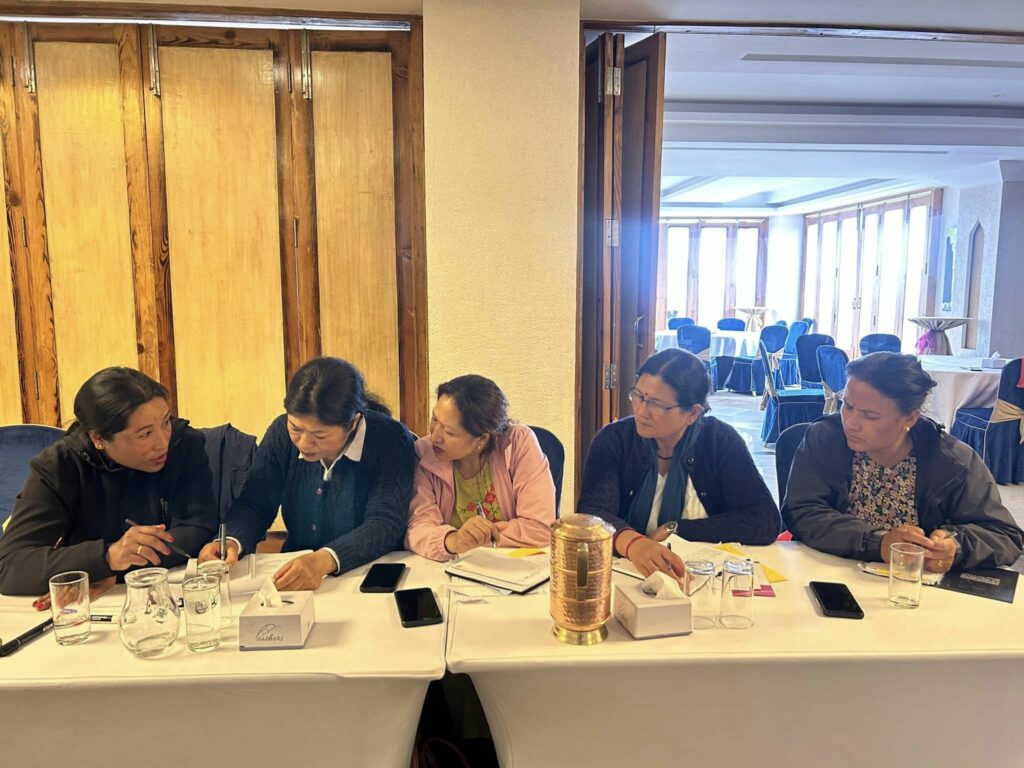
Prayatna Nepal is a nonprofit, non-religious, and non-political women led organization established for the empowerment and rights promotion of women and girls with visual impairments. Since its establishment in 2015, Prayatna Nepal has been implementing various activities targeting to the visually impaired girls and women. Since Prayatna Nepal is the part of overall national and global disability rights movement, it has adopted the social and rights-based model of disability and the key motto of global disability rights movement “Nothing about us without us”. The organization is established by the composition of both women with and without visually impairments. Among the seven board members, five of them (71%) are with visually impairments where the organization is led by the totally blind woman as the Chairperson. This idea of inclusion in the organizational structure is to ensure equal efforts from every individual with better understanding in improving social, cultural, economic and political aspects of lives of women with disabilities.
On the first day, chairperson of Prayatna Nepal, Ms. Sarita Lamichhane requested the participants to fill the pre-test questions and played the introductory video of Prayatna Nepal simultaneously before the program was formally started. She requested the logistics support staff to distribute pre-test questions to individual participants in order to analyze their basic knowledge on SRHR and Disability. After collecting pre-test answers, she invited Ms. Sarita Maharjan, Chief of Public Health Department of Lalitpur Metropolitan City, who formally commenced the program by welcoming everyone. She highlighted the objectives of the orientation in her welcome remarks, while the team members published the results of the pre-test. Ms. Sarita Lamichhane then took over the floor by asking individual participants and team members to introduce themselves. During the introduction round, everyone was asked to state their names, designation, and their first thought on what disability or persons with disabilities look like. After introduction, she asked the participants to jot down their expectations from two days orientation in relation to the planned sessions as per the schedule. After this, she initiated the session by giving a group work on concept of disability. For this, she asked the participants to form a group of four who were distributed sheets with few information on types /modality of disability. She made the participants discuss the information in a group and individually vote for their preferred team (type). These voting options in the sheet were presented as political parties which in fact reflected upon the types of disability. After the participants chose their preferred team, they were asked to share about it. After the participants shared their thoughts, Ms. Sarita Lamichhane briefed on changes in viewing disability with time. She explained that there are basically four changes: i. First, persons with disabilities were seen with pity and they need to be helped with charity (Welfare Model), ii. Later, it was believed that disability is some kind of deform which can be treated through medical procedures (Medical Model), iii. Then, people started looking at disabilities through social welfare lenses whereby they believed that persons with disabilities should be supported by the society (Social Model), iii. Now, people have shifted their perception into being more human rights sensitive and believing that persons with disability are humans and should be treated equally like everyone else with more meaningful participative approach (Human Rights-based Model). However, when the participants were asked to relate this modality with present situation in Nepal, most of the participants believed that Nepal is still somewhere between Medical and Social Model. Moreover, in order to educate the participants more about disability, she asked the logistic team to play a video documentary, which informed about types of disability on the basis of severity and functional limitations. Her session was basically focused on accessibility and universal design to ensure inclusion of persons with disabilities. She also talked about societal judgments and notions on SRHR and sexuality of persons with disabilities. Not only that, she used practical methods to find out participants' understanding on disability. She also cleared some confusions among participants on terminologies used to address persons with disabilities. Through her sessions, she also encouraged participants to learn and use respectful terms and language to address persons with disabilities while providing health related services and information.
On the second day, the training started with participants sharing what they learnt on the previous day. Then Ms. Sarita Lamichhane took session by playing an informative video to encourage the participants to make efforts for accessible health services/information. She then again highlighted the importance of making such services/information is not only beneficial for persons with disability but for everyone as it makes the services more convenient and easier to use and understand. Then, she talked more about plight of family planning decisions in family with mentally disabled children/adolescents. She requested the health workers to be more thoughtful on individual human rights while providing services to persons with severe disabilities. She also encouraged the participants to provide proper counselling to the family/parents/guardians of such patients in their respective health posts. After the first half of the day, Ms. Neera Adhikari, under-secretary of Ministry of Women, Children and Senior Citizen, was invited to present on national policies related to persons with disabilities. She focused discussions on existing health/ SRHR policies related to persons with disabilities and the role of local level government. She highlighted that disability is not illness or crime, but it is a situation and can happen to anyone at any time. She then proceeded to talk about provisions of Convention on the Rights of Persons with Disabilities (CRPD), Constitution of Nepal, Acts and Rules on the Rights of Persons with Disabilities, Local Government Operation Act and their roles, National Policy regarding persons with disabilities. Her presentation briefly highlighted that local government is accountable and responsible to abide by all the international and national policies in order to ensure inclusive and participative human rights of persons with disabilities. After Ms. Neera's session, Ms. Sarita then engaged the participants in a game to energize them as well as sensitize them on importance of accessible health related information and services to persons with disabilities which can be achieved by following universal design. After the interesting practical session, the participants all agreed that ensuring accessibility can promote inclusion of persons with disabilities. She then facilitated group work where the participants presented on given case stories surrounding the myths and misconceptions and potential solutions to address the problem associated with disabilities. Furthermore, Ms. Sarita took suggestions from the participants regarding registration of persons with disabilities who come to seek medical help or services with the aim of making health-related giving and taking more convenient.
At the end of the second day, Ms. Sarita Lamichhane asked the participants to fill up post-test questionnaires which showed remarkable increase in knowledge and understanding on SRHR and disability issues among the health workers. The participants were also asked to submit feedback to ensure better program organization in future by Prayatna Nepal. She then asked the participants to share their feelings about the orientation individually. After the sharing session, she welcomed Ms. Deepika Sharma, treasurer of Prayatna Nepal who thanked everyone for their participation and concluded the programs.
